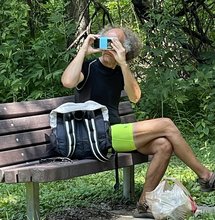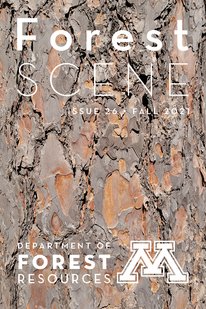
Professor, Department of Forest Resources
Dr. Ingrid Schneider is a professor in the Department of Forest Resources. She’s recently finished a new edition of the book Diversity, Equity and Inclusion in the Recreation Profession (4th edition) that uniquely addresses foundational knowledge, the latest research, and lived experiences related to equitable and inclusive organizational management. The new edition features attention to equity, shares new chapters on gender and transgender service provision, highlights several new lived experiences, as well as new cases illustrating collaboration with tribal nations and inclusive event, sport, and outdoor programming.
She says her favorite research topic is investigating constraints to outdoor recreation and nature-based tourism. These constraints are things that could prevent someone from participating or from even developing an interest in an outdoor activity in the first place. Some of these are obvious, when we think about them—although the vast majority of us don’t think about them as consistently as we should. For example, a trail that’s non-compliant with the American’s with Disabilities Act could be a constraint for people with certain mobility issues.
“The integration of application and theoretical development is kind of the sweet spot for me. What’s so interesting to me about them is many of the constraints are manageable. Sometimes it’s a mismatch of perceptions, sometimes it’s a policy or the design of a facility.”
So how does she even find these constraints to begin with? “I think it’s a coupling of the human and ecological system, and there’s a rich history of constraints research from which we can start and develop and adapt as necessary.” It gets complicated because people are complex and dynamic and their preferences and capabilities can change through the course of their lives and skill progression. And there’s also the intersections of things like race, gender, and income to consider. “With the movement toward inclusive and equitable recreation and leisure experience, there’s a heightened awareness of things that weren’t always considered as much before like representation and the specific language used.”

One of Dr. Schneider’s most recent projects at 3 state parks compares if and how information presented impacts acceptance of how forests are managed in response to emerald ash borer. The experiment allows her team to compare no information, standard photos and text, virtual reality headsets, and augmented reality with phones and provide insight into how people react to the different communication modes. This project inspired her growing interest toward advanced information communication technologies like virtual and augmented realities.
“Certainly living with covid-19, we saw a shift toward a more virtual society and we’re moving toward a more robotic economy, so that is leading my interest toward automated monitoring, among other topics.”
Does she enjoy imagining our robotic future of recreation or is it scary and remind her of the movie Terminator?
“Oh, I’m not scared. I think it’s fascinating, but we’ll see what the public thinks. There’s kind of a love/hate relationship with technology among the public. We see hotels using robots as butlers. We see state parks using self-service stations to get your park pass. I saw in Singapore they had a robotic dog that barked at people who were too close together in a park. It’s so exciting, and we’ll see how it diffuses. We’ll see how people react. That’s always the most important thing.”
Image 1 description: Headshot of professor Ingrid Schneider.
Image 2 description: A man with grey hair sitting on a park bench and looking through a pair of augmented reality goggles.

The Forest Scene newsletter is published biannually in the spring and fall, featuring stories and updates from the Department of Forest Resources. Readers can download issue 26 of Forest Scene as an interactive PDF that is fully tagged and compatible with most screen readers, or read the individual stories here in a web-based format.
